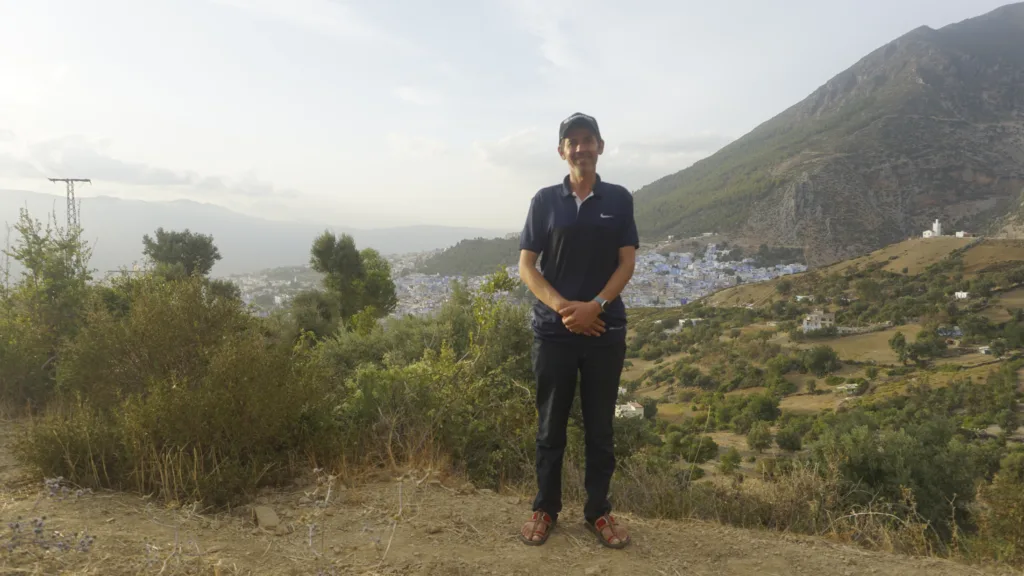We met Mostafa in a small village close to Chefchaouen, and we immediately saw the kindness in his eyes. He spontaneously offered to welcome us to his home anytime. We couldn’t stay but promised ourselves that we would one day. We were indeed warmly welcomed sooner than expected when we came back unexpectedly a few weeks later. One phone call was enough to find ourselves at his home, not just for one night, but to finally stay in this piece of heaven for a week. Thus began this precious journey of discovering Mostafa’s house, family, and daily life.
Mostafa, his wife Oum-Kalthoum, and their children live in a traditional house nestled at the foot of the mountains of Chefchaouen. The city remains accessible by foot every day since the road hasn’t reached the house, preserving this place beautifully. On the terrace garden and rooftop of the house, you can fully enjoy peace and calm while eating Oum-Kalthoum’s couscous and contemplating the city from above, with no noise except for the birds and the meowing of the numerous lovely cats that the family feeds each day.
Mostafa and his family welcomed us like old friends. The desire to share made the language barrier easily fall, allowing me to understand a lot about their story and culture. Mostafa’s father was a farmer who moved to Chefchaouen in the 70s when it was still a green valley. Mostafa spent his childhood there and witnessed the city’s transformation and growth since the 80s. He knows the place perfectly and can share a lot of stories about it.
But what touched us even more was his own family story—how, hand in hand, his father and mother managed to buy a piece of land in these mountains, how they learned farming with the purpose of building a self-sustainable place by utilizing the natural resources of nature with respect. These resilient individuals taught us a life lesson as we witnessed how hard they worked to become self-reliant. Over the years, they planted and grew what they needed to provide food for the family. There, we found pomegranates, figs, olives, apples, and vegetables. Mostafa also learned various farming techniques from foreigners and acquired knowledge about cannabis farming, an ancient and traditional practice in Morocco.
As we spent this week away from the chaos of the city and detached from superficial things, we simply relished the happiness of being together in nature and sharing our cultures in a time when screens often keep people apart. As a foreigner, I felt even luckier because, despite having traveled and met many people in Morocco, I discovered in Mostafa’s home an open door to their world—a different facet of Morocco that I hadn’t encountered before and that I believe everyone should explore.
Inspired by this warm feeling of sharing, we have decided to work together and offer this opportunity to other people interested in discovering this side of Morocco: sharing thousands of years of knowledge with kindness, honesty, and respect for nature and culture.
